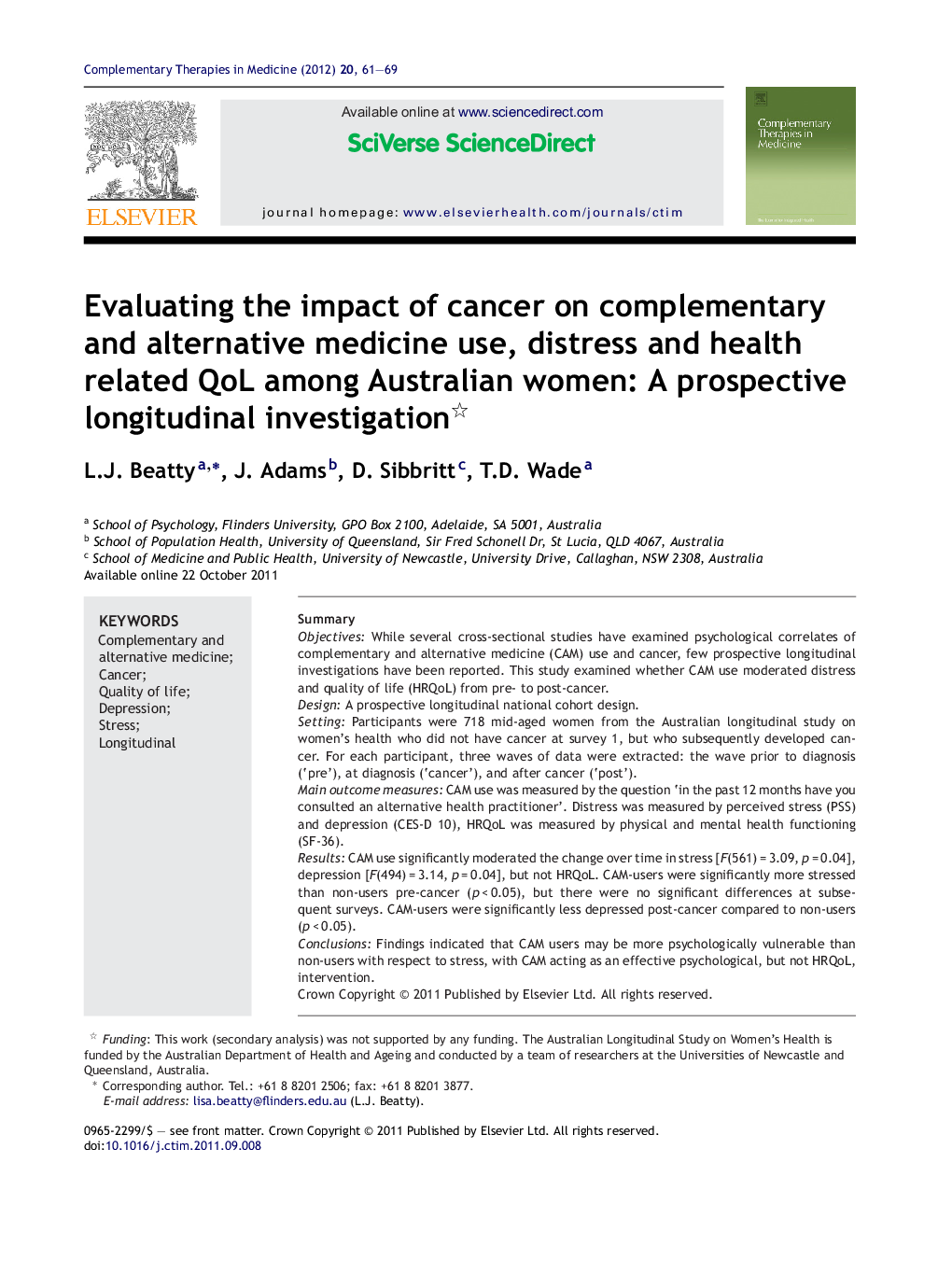| Article ID | Journal | Published Year | Pages | File Type |
|---|---|---|---|---|
| 2629197 | Complementary Therapies in Medicine | 2012 | 9 Pages |
SummaryObjectivesWhile several cross-sectional studies have examined psychological correlates of complementary and alternative medicine (CAM) use and cancer, few prospective longitudinal investigations have been reported. This study examined whether CAM use moderated distress and quality of life (HRQoL) from pre- to post-cancer.DesignA prospective longitudinal national cohort design.SettingParticipants were 718 mid-aged women from the Australian longitudinal study on women's health who did not have cancer at survey 1, but who subsequently developed cancer. For each participant, three waves of data were extracted: the wave prior to diagnosis (‘pre’), at diagnosis (‘cancer’), and after cancer (‘post’).Main outcome measuresCAM use was measured by the question ‘in the past 12 months have you consulted an alternative health practitioner’. Distress was measured by perceived stress (PSS) and depression (CES-D 10), HRQoL was measured by physical and mental health functioning (SF-36).ResultsCAM use significantly moderated the change over time in stress [F(561) = 3.09, p = 0.04], depression [F(494) = 3.14, p = 0.04], but not HRQoL. CAM-users were significantly more stressed than non-users pre-cancer (p < 0.05), but there were no significant differences at subsequent surveys. CAM-users were significantly less depressed post-cancer compared to non-users (p < 0.05).ConclusionsFindings indicated that CAM users may be more psychologically vulnerable than non-users with respect to stress, with CAM acting as an effective psychological, but not HRQoL, intervention.
